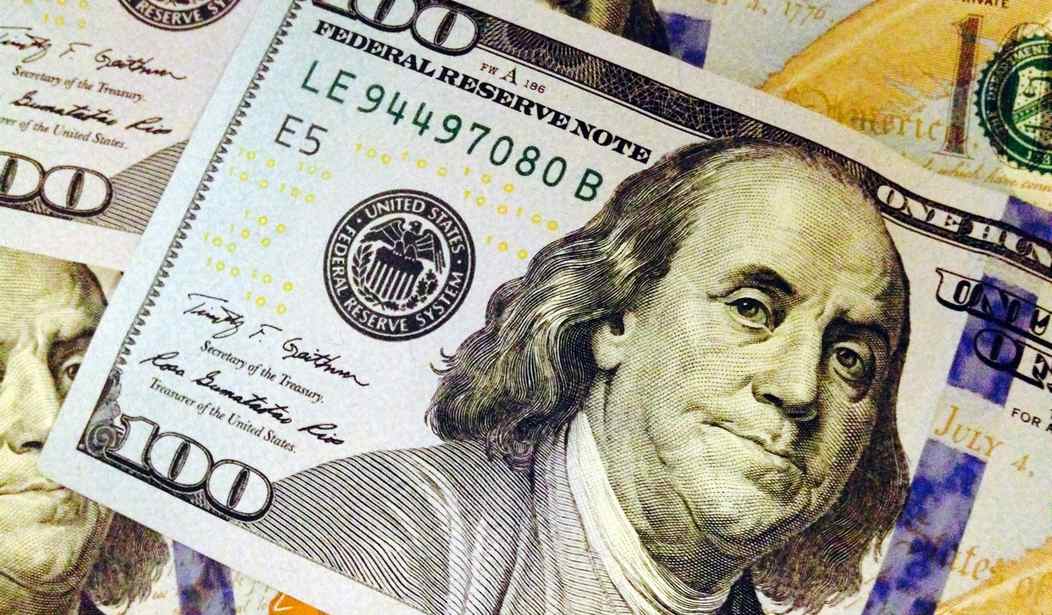If you're a normal person who pays attention to politics, you'd be forgiven for thinking that Washington can't decide whether deficits are bad or not. Well, I have one easy trick that will help you make sense of it all.
In Washington, when you hear people complain that this or that piece of legislation will "explode" the deficit, what they are really telling you is that they don't like the legislation.
It's really that simple. Good legislation, like good food, movies, novels and pretty much everything else except for dogs (they're all good), is in the eye of the beholder. A politician or partisan who thinks a proposal is worth doing will think it's worth doing even if it increases the deficit. If he thinks a proposal is bad, he might argue that it's bad on the merits. But you can be sure that if it also increases the deficit, he will cite this fact as a major reason why it is bad.
That is the role deficits -- and the national debt -- play in our politics. Anti-debt talk serves as dye marker for some more fundamental objection.
Almost everyone thinks deficits are bad in the abstract, but that their badness should only be a problem for the other side. In 2008, for example, then-presidential candidate Barack Obama said that the $4 trillion in debt rung up under George W. Bush was "unpatriotic." But his actual complaint wasn't about the debt but what that money was spent on -- the Iraq war and tax cuts.
Under Obama, the national debt soared from $11 trillion to just under $20 trillion, but that deficit spending was justifiable, according to Democrats, because it went to combating the financial crisis and paying for various other domestic programs.
Recommended
The source of the apparent inconsistency isn't simply partisan hypocrisy (though that's a factor as well), but a good-faith ideological disagreement.
As a matter of economic policy, conservatives believe that the people themselves are better at spending their money than the government is. Cutting taxes and regulations drives economic growth. Liberals, meanwhile, believe that the government is the prime, or at least an indispensable, driver of economic growth.
This is why liberals tend to talk about spending on everything from infrastructure to education as an "investment." The Obama stimulus was sold as an investment that would pay huge dividends, thanks in part to Keynesian "multipliers" -- the idea that every dollar of government spending results in more than a dollar in economic growth. Obamacare, we were told, would reduce the deficit by cutting health care spending and improving economic growth.
Conservatives make similar arguments about tax cuts. Over the weekend, Senate Majority Leader Mitch McConnell told Fox News that the tax cuts would yield more than enough economic growth to make up for the deficit the bill creates on paper.
On the philosophical side, there's an even starker conflict of visions. Liberals tend to start from the assumption that the government is entitled to as much revenue as it needs, and so tax cuts amount to giving people money.
Earlier this year, Sen. Bernie Sanders proposed a budget that would add at least $21 trillion to the debt over a decade. But when the Senate passed the GOP tax bill, he tweeted, "Historians will look back on Dec. 1, 2017 and conclude this was one of the great robberies in US history because Republicans are looting the Treasury." For Sanders, letting people keep more of their own money is theft -- because it's really the government's money.
Conservatives, on the other hand, start from the assumption that money belongs to the people and businesses who earn it. Letting people and businesses keep more of their money isn't a handout or giveaway, never mind a robbery: It's fairness.
The ultimate problem is that everyone says they care about the deficit, but few people care about it enough. Democrats think spending is more important than the deficit, and Republicans think cutting taxes is more important. And that's why the national debt is more than $20 trillion, and growing.

























Join the conversation as a VIP Member